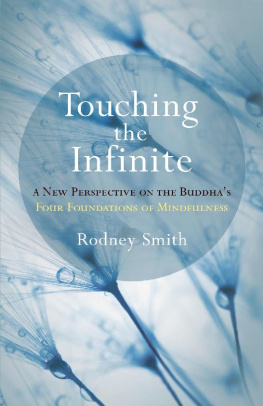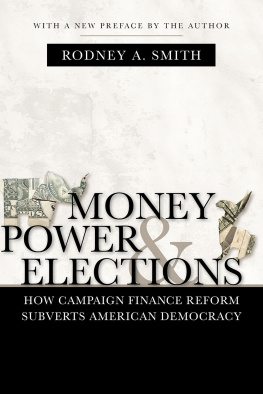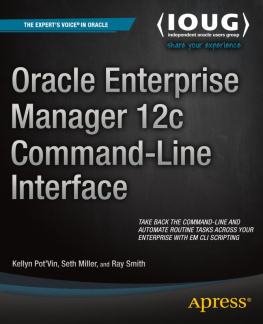Rodney Smith - First Command
Here you can read online Rodney Smith - First Command full text of the book (entire story) in english for free. Download pdf and epub, get meaning, cover and reviews about this ebook. genre: Science fiction. Description of the work, (preface) as well as reviews are available. Best literature library LitArk.com created for fans of good reading and offers a wide selection of genres:
Romance novel
Science fiction
Adventure
Detective
Science
History
Home and family
Prose
Art
Politics
Computer
Non-fiction
Religion
Business
Children
Humor
Choose a favorite category and find really read worthwhile books. Enjoy immersion in the world of imagination, feel the emotions of the characters or learn something new for yourself, make an fascinating discovery.

- Book:First Command
- Author:
- Genre:
- Rating:3 / 5
- Favourites:Add to favourites
- Your mark:
- 60
- 1
- 2
- 3
- 4
- 5
First Command: summary, description and annotation
We offer to read an annotation, description, summary or preface (depends on what the author of the book "First Command" wrote himself). If you haven't found the necessary information about the book — write in the comments, we will try to find it.
First Command — read online for free the complete book (whole text) full work
Below is the text of the book, divided by pages. System saving the place of the last page read, allows you to conveniently read the book "First Command" online for free, without having to search again every time where you left off. Put a bookmark, and you can go to the page where you finished reading at any time.
Font size:
Interval:
Bookmark:
Rodney L. Smith
First Command
Chapter One
It was a grippingly cold, blustery, and overcast day at the Fleet Ordnance Proving Grounds. It was the kind of day that makes one want to stay inside in slippers and robe while drinking hot cocoa. John Banks, Chief Test Officer, was just wishing hed worn a heavier coat. The cold breeze was finding every gap around his neck, waist, and sleeves to crawl inside with him. He was so grateful when the gun was aimed, the target steel plate was in its framework, and he could get back inside the blockhouse.
The damp, slightly dank warmth of the blockhouse felt good after the biting cold outside. He adjusted the final voltage to the Yestepkin Gun and sounded the range siren. He looked around at his various test monitors at their consoles and asked if they were all ready. He got a thumbs-up from each station and fired up his own terminal. As the readouts stabilized, he thought back to how many of these prototype guns, shields, missiles, gadgets, and doodads developed by some talented amateur or backyard scientist he had tested. So few of them amounted to much. Almost none of them lived up to the hyped up sales pitch from their developer.
He did admit that Valeri Yestepkin stayed away from the more grandiose statements made by other weapons developers. In fact, his request for appraisal said only that, Prototype weapon in accordance with paragraph 1. C. 56. a of block grant 1601.7c is submitted for your review and appraisal. It was most unusual in its brevity and lack of adjectives.
His terminal was ready, he dialed up the huge amount of necessary power, and he hit the siren button again. The gates around the test range closed and locked. The flashing red warning lights activated. People on nearby ranges put on their goggles and hearing protection. John Banks charged the gun and set it for narrow beam. He paused a moment, to ensure everyone was ready and recording. He hit the fire button, lights dimmed, and a silent, invisible beam of energy reached out and bored an 8 cm diameter hole in the 5 cm thick steel plate.
That was impressive. So far, so good. He activated the trolley system and moved the steel plate over two meters, to offer up a fresh target for the wide beam. He sounded the alarm again, waited for the gun to charge and hit the fire button. As before, the unseen beam of energy reached out and a two-meter circle of steel disappeared, as did a piece of the backing berm.
A technician in the front row exclaimed, Whoa, is it supposed to do that?
John Banks wasnt sure. He called up the grant paperwork and read the section on expected design characteristics. The gun employs radical new technology to disrupt the molecular bond of objects and cause the target to dissipate as a cloud of disaggregated atoms.
He left the blockhouse and approached the target steel. The holes made at narrow and wide beam were equally smooth and cool to the touch. He could smell a slight acrid odor as the wind shifted around. He walked around back of the target frame and inspected the berm. The two-meter diameter circle continued behind the target to a depth of one meter. In the center of the bigger circle was a smaller circle. John squatted down and could see daylight on the other end.
Sudden realization hit him like a bucket of icy water poured down his back. In a panic, he scrambled over the berm to see what damage had been wreaked on the other side. Fortunately, the adjacent range was not in use. He walked down that range to its blockhouse and saw the hole in its forward face, but it only went in 8 centimeters.
He trudged back to his range, climbed over the berm, and called his supervisor.
Boss, I think we have a game changer weapon here. Oh, and well need some repairs to ranges six and seventeen.
Shadow Leader JKraul was called unexpectedly before the KRang Elders. He barely had time to change into his formal uniform, after returning hurriedly from the range where he had been qualifying on a new pistol. He was still adjusting the hang of his cape, and handing over his weapons to the Imperial Guards, when he was instructed to enter. The three elders on their high bench viewed him dispassionately as he marched to the traditional spot four paces from the bench, halted, and saluted.
JKraul calmed his racing heart as best he could and addressed the Elders. Excellencies, I am Shadow Leader JKraul reporting as ordered. How may I serve the Empire?
The middle Elder spoke. Shadow Leader, we wish a report on your efforts to acquire information on the Humans ability to rapidly shift large forces within their space. I know we asked for the report three weeks hence, during the last time you were before us, but the true extent of our defeat at GDranu moves us to an increased level of concern.
JKraul came to stiffer attention and spoke. Excellencies, our agents within Human space have confirmed that the Humans have developed a teleportation gate capable of transporting their largest ships vast distances to another gate almost instantaneously.
When we attacked the Humans at GDranu, they had only a prototype pair of rings. They moved one of the rings to their sector adjacent to GDranu and pushed through a massive force. Our fleet did not have a chance. The Human force was more than six times the size of our invasion force, and even outmatched our additional task forces sent to reinforce.
We have made gathering information on these rings our number one collection priority. We have gained an immense amount of data on the system, but nothing that will allow understanding how it works or to help us build our own. That information is being guarded like nothing we have ever experienced before.
The technical information on the systems operation exists within a small research community that is highly secured and operates on a compartmentalized basis. Only a few people know how all the components work together. We are attempting to determine who these individuals are and if there are any others that may have access to this information. There is almost always a research assistant or administrative assistant that has access to the data because of sloppy security or a personal relationship with one of the researchers.
Once we locate one of these peripheral individuals, we will induce this individual to allow us access to the operational data. We have even considered abducting the lead researchers and bringing them to our theoretical physics research institute on TPifa, but feel that would result in open war with the Humans. In our weakened state and with their transporter capability, we calculate the cost would be much greater than the gain.
The left Elder said, We concur, Shadow Leader. This will require traditional, classical espionage to be successful. The Humans must not know we possess their technology, until we are prepared to deploy it in operationally significant numbers. If they suspect we are building this system, it may precipitate a war we are unprepared to fight. Keep us informed of your progress. Thank you, Shadow Leader.
Having been dismissed, JKraul bowed, saluted, and backed out of their presence. He met his aide, who had retrieved his weapons from the stoic Imperial Guards. The aide passed his weapons back to him and they walked in silence until they passed out of the guards earshot.
JKraul said softly to his aide, Have HTopa come to me first thing tomorrow morning.
Kelly Blake, the new captain of the Galactic Republic Ship Vigilant, was the youngest Captain in the Fleet. Having been recently promoted to Lieutenant, he was frocked to Lieutenant Commander and assumed command of the Scout Ship Vigilant. Frocking was an ancient tradition, in which a junior officer was allowed to wear the next higher rank in order to assume a position requiring that rank. It was generally used when there were more positions than officers of the right rank or qualifications to fill them. In Kellys case, it was based on merit. Kelly would have almost all the privileges and responsibilities of a Lieutenant Commander, but would still be paid as a Lieutenant.
Font size:
Interval:
Bookmark:
Similar books «First Command»
Look at similar books to First Command. We have selected literature similar in name and meaning in the hope of providing readers with more options to find new, interesting, not yet read works.
Discussion, reviews of the book First Command and just readers' own opinions. Leave your comments, write what you think about the work, its meaning or the main characters. Specify what exactly you liked and what you didn't like, and why you think so.







